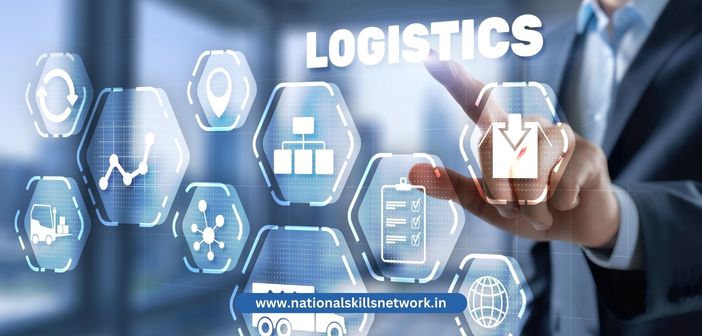India’s Logistics industry is undergoing a remarkable transformation driven by disruptive technological advancements, resulting in significant growth and improved rankings in the World Bank’s Logistics Performance Index (LPI). In 2023, the industry is poised to leverage the benefits of emerging technologies, policy initiatives, and substantial infrastructure investments. This technological disruption in the Logistics industry holds immense potential to propel the Indian economy forward, provided we understand the significance and take proactive measures to develop appropriate skills.

Guest author: Ramkumar Subramanian, COO – Avaan Intellect (Alumni of IIT & IIM-A, Veteran with 4 decades of Experience in Supply Chain Management with expertise in supply chain optimization, network planning, inventory planning & digitization of supply chain operations)
By embracing innovative technologies and harnessing data-driven insights, businesses within the logistics sector can unlock enhanced operational efficiency, broaden their supplier networks, and extend their last-mile reach to effectively meet market demand. Let’s explore the top five ways technology is revolutionizing the Logistics and Supply Chain industry.
Top 5 technological advancements in the Logistics and Supply Chain industry
- Real-time visibility and transparency: Traditional barcode and QR code systems have evolved into more advanced methods like RFID tags and IoT chips. These technologies provide real-time data, enabling precise tracking of items and events in the supply chain. This data is invaluable for operations planning, resource allocation, and progress tracking. Real-time transparency ensures all stakeholders have access to the same information, improving overall efficiency and eliminating unnecessary follow-ups.
- Evaluation and selection of suppliers: Technology has expanded the evaluation process beyond price-focused e-bidding. Holistic measures such as quick project turnaround, community development, and supplier diversity are now considered. Third-party optimization tools with analytics capabilities aid in procurement transparency and equitable business practices.
- Supplier engagement: As supplier networks become more complex, traditional practices of contract management and billing can lead to delays and strained relationships. Advanced solutions, such as procurement platforms, leverage real-time data to manage vendor contracts, automate invoicing and payments, and improve overall spending control. This integrated approach enhances operational efficiency and strengthens supplier relationships.
- Decision support system for Supply Chain decisions: Real-time data availability empowers organizations to make informed decisions. By converting data into meaningful information based on business needs, key parameters, and regular reviews, organizations can evaluate performance, assess capacity accurately, and allocate resources effectively. Real-time information facilitates both short-term resource allocation and long-term capacity planning and infrastructure growth.
- Advance Warning System: Technology-enabled systems provide timely warnings for sudden activity surges or reductions, aiding in effective planning and preventing stock outs or surpluses. These systems leverage automated real-time surveillance capabilities, incorporating macroeconomic data, key events (e.g., pandemics), and simulations to forecast likely outcomes. The advance warning system enables organizations to plan coordinated responses and allocate resources where they are most needed.

Overall, technology-driven supply chains enable organizations to allocate critical products and resources efficiently, resulting in cost and time savings. The integration of disruptive technologies into the Logistics industry is set to drive economic growth and position India as a global leader in Logistics innovation.
In-demand skills to thrive in the rapidly evolving logistics and supply chain industry
In order to thrive in the rapidly evolving logistics and supply chain industry, it is essential for individuals to possess certain skills that enable them to adapt to the technology revolution taking place.
- Strong digital literacy is crucial, as technology plays a pivotal role in every aspect of the industry.
- Familiarity with various software applications, and data analysis tools, and the ability to navigate digital platforms are all invaluable skills.
- Additionally, problem-solving and critical thinking skills are essential to effectively utilize technology and overcome challenges that may arise.
- The ability to analyze complex data, interpret trends, and make informed decisions is invaluable in optimizing logistics and supply chain processes.
- Strong communication and collaboration skills along with a mindset of continuous learning are essential for effectively working with cross-functional teams and leveraging technology to enhance communication and coordination.
It might also interest you to read: Top 7 Job Roles in Logistics and Supply Chain Management (LSCM)
Staying updated on the latest trends, attending relevant training and upskilling programs, and actively seeking opportunities to expand technological skills will ensure individuals are well-equipped to cope with the technology revolution in the Logistics and Supply Chain industry.














I want to improve my knowledge and skills in logistic support/Supply chain management.
Is NSDC/Skill India running any train/course in this field?